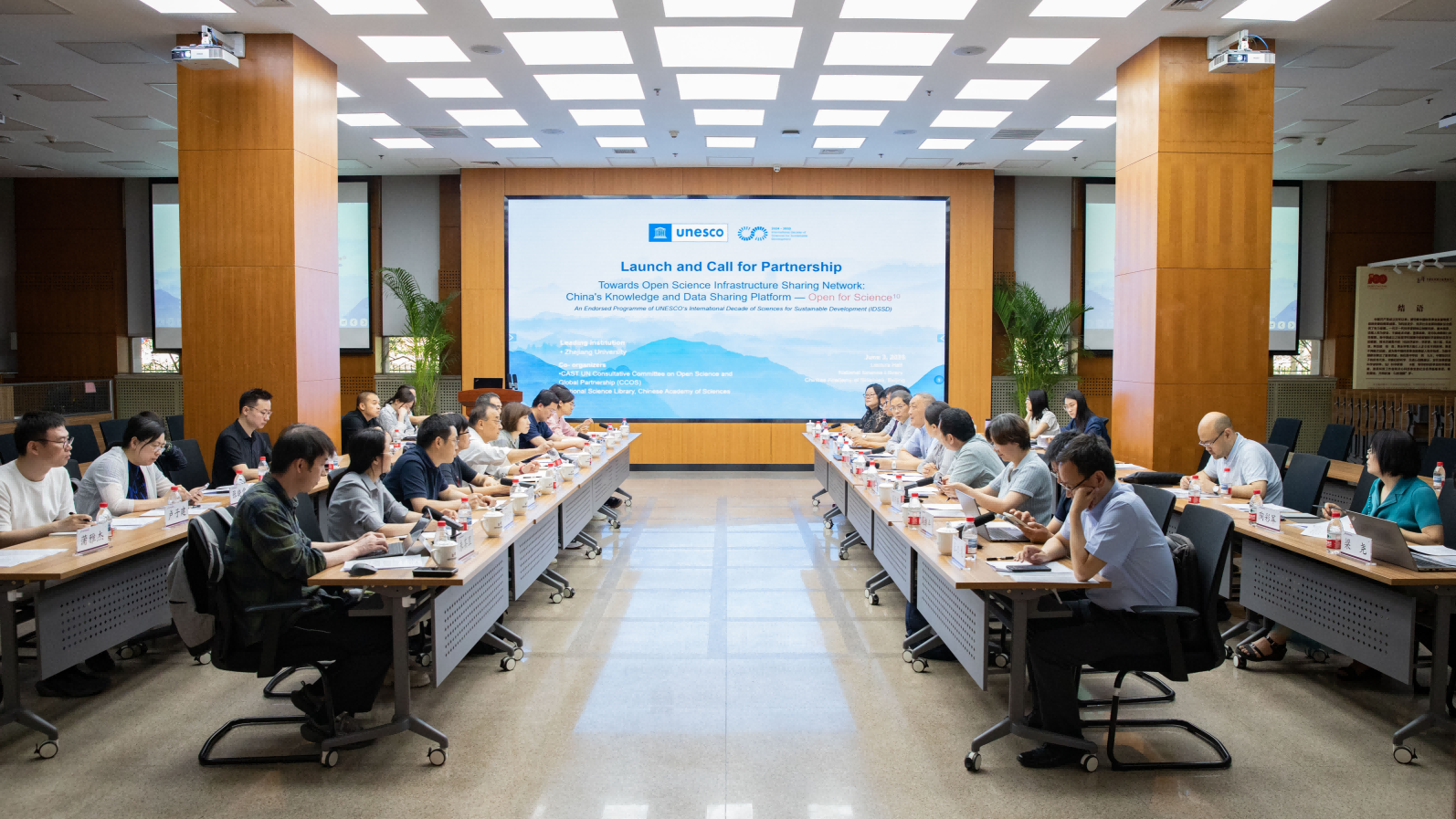OS10: Another Step Towards Open Global Sci-tech Cooperation

To promote a more equitable research environment and international sci-tech cooperation, China launched an open science initiative, "Towards Open Science Infrastructure Sharing Network: China's Knowledge and Data Sharing Platform — Open for Science10 (OS10)," in Beijing on June 3.
Endorsed by the Executive Committee of UNESCO's International Decade of Sciences for Sustainable Development (IDSSD), OS10 is an action plan of the Chinese scientific community to support the IDSSD strategy. It aims to establish an open and shared infrastructure framework and reduce persistent disparities in access to and use of scientific knowledge, especially in countries and regions with limited capacity.
The OS10 represents a significant and forward-looking contribution to the global call for open, inclusive and collaborative science, Shahbaz Khan, director and representative to UNESCO Regional Office for East Asia, said in his video speech. "It is a practical manifestation of China's leadership and regional cooperation in advancing open science infrastructure sharing."
Coordinated by the National Science Library, Chinese Academy of Sciences (CAS), the initiative has three goals: designing a technical architecture for open science infrastructure within the UNESCO open science framework; implementing Open for Science10; and monitoring open science readiness.
To make Open for Science10 comprehensive, the initiative is seeking partnerships with domestic platforms such as the Open Access Repository of the National Natural Science Foundation of China, and the Science Data Bank of the Computer Network Information Center of CAS.
Yang Wei, leader of the initiative, a CAS academician and a professor at Zhejiang University, told Science and Technology Daily that the team is contacting institutions in East Asia and Europe for cooperation on OS10.
The digital divide makes it difficult for some countries to establish open science platforms as they are struggling to gain access to the Internet. If China can take the lead to build an open science platform that can connect with more people, it will be very meaningful, Yang said.
China has been proactively responding to open science. Wang Xiao, deputy director-general of the Department of International Cooperation, Ministry of Science and Technology, pointed out that China had proposed an international science and technology cooperation initiative in 2023, calling for open, fair, just and non-discriminatory international cooperation in science and technology.
In November 2024, China, Brazil, South Africa and the African Union jointly launched the Initiative on International Cooperation in Open Science to promote global cooperation in science, technology and innovation.







